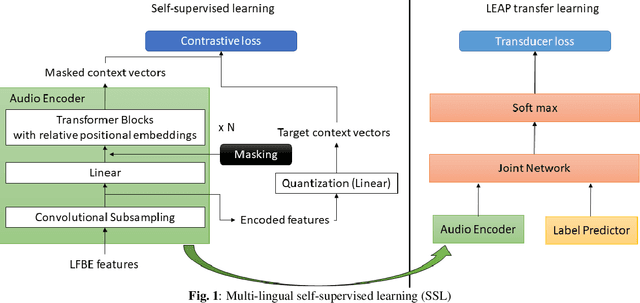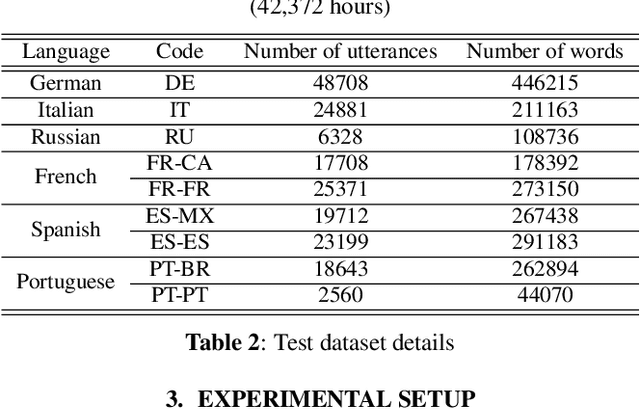Multilingual Speech Recognition using Knowledge Transfer across Learning Processes
Paper and Code
Oct 15, 2021



Multilingual end-to-end(E2E) models have shown a great potential in the expansion of the language coverage in the realm of automatic speech recognition(ASR). In this paper, we aim to enhance the multilingual ASR performance in two ways, 1)studying the impact of feeding a one-hot vector identifying the language, 2)formulating the task with a meta-learning objective combined with self-supervised learning (SSL). We associate every language with a distinct task manifold and attempt to improve the performance by transferring knowledge across learning processes itself as compared to transferring through final model parameters. We employ this strategy on a dataset comprising of 6 languages for an in-domain ASR task, by minimizing an objective related to expected gradient path length. Experimental results reveal the best pre-training strategy resulting in 3.55% relative reduction in overall WER. A combination of LEAP and SSL yields 3.51% relative reduction in overall WER when using language ID.
 Add to Chrome
Add to Chrome Add to Firefox
Add to Firefox Add to Edge
Add to Edge